The Rules of Investing
The Rules of Investing is one of Australia’s longest-running business podcasts, providing investors with unparalleled access to the ideas and insights of Australia’s leading fund managers, economists and industry experts. Learn how the industry’s best invest, with the help of Livewire’s James Marlay and Chris Conway. Whether you’re new to investing or a seasoned professional, this podcast is for you. New episodes are released every second Friday, available on Livewire Markets, Spotify, Apple Podcasts, and YouTube.
Episodes
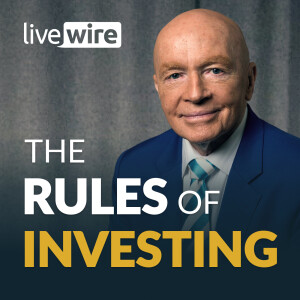
Monday Jun 16, 2025
Mark Mobius: Change is coming and most companies are not prepared
Monday Jun 16, 2025
Monday Jun 16, 2025
“People are getting too short term. They’re getting panicked by the developments taking place on tariffs and so forth... they don’t realise it’s often just a bargaining point.”
That’s the view of Mark Mobius, a pioneer in emerging markets investing and founder of Mobius Investments. Mobius says many investors are misreading the noise echoing around global markets. His advice? “Be patient and be willing to roll with the punches.”
In this episode of The Rules of Investing, Livewire’s James Marlay caught up with Mobius in New York to explore how he’s navigating global uncertainty, the investing lessons from decades of travel and working in Asia, and why he believes India is shaping up to be the standout opportunity of the next decade.
With a PhD from MIT and a track record that includes growing Templeton’s Emerging Markets Fund from $100 million to $50 billion, Mobius has experienced the highs and lows of multiple market cycles and dislocations.
_____________________
Thanks to our Sponsor AlphaSenseThis latest episode is brought to you by AlphaSense.See what AlphaSense can do for your investment research—visit alpha-sense.com/livewire to get started.
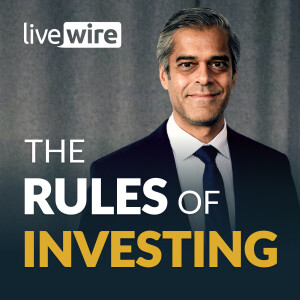
Friday Jun 06, 2025
Friday Jun 06, 2025
Ellerston Capital’s fixed-income and multi-asset strategist Vimal Gor says the radical Trump presidency means the US Federal Reserve will be forced to return to quantitative easing later this year to cap bond yields and offset the nation’s fiscal problems.
In this podcast, Gor also details why he thinks this means shares, gold and bitcoin can rally later this year. He also argues why he thinks the Aussie dollar will jump versus the greenback on the back of radical shifts in markets that may be set to accelerate and impact every investor.
_____________________
Thanks to our Sponsor AlphaSenseThis latest episode is brought to you by AlphaSense.See what AlphaSense can do for your investment research—visit alpha-sense.com/livewire to get started.
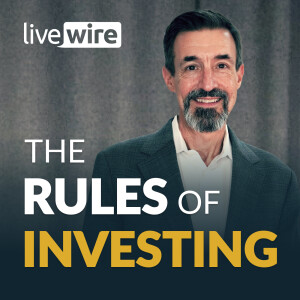
Wednesday Jun 04, 2025
Investors had a decade to buy Amazon. Is it Spotify’s turn now?
Wednesday Jun 04, 2025
Wednesday Jun 04, 2025
Amazon spent over a decade as a misunderstood stock - volatile, unprofitable, and often written off. But for those who looked past the noise, it became one of the greatest investments of our time. Today, Janus Henderson sees echoes of that journey in Spotify. It may not look like a market leader yet, but under the surface, the building blocks of enduring growth are falling into place. In this episode, Josh Cummings explains how volatility creates opportunity, why time is a long-term investor’s best friend, and what separates the winners from the noise. Is Spotify your second shot at an Amazon-style success?
_____________________
Thanks to our Sponsor AlphaSenseThis latest episode is brought to you by AlphaSense.See what AlphaSense can do for your investment research—visit alpha-sense.com/livewire to get started.
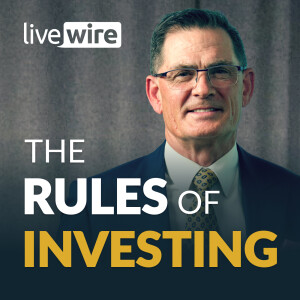
Friday May 30, 2025
Marcus Padley reveals the secret sauce of timing markets
Friday May 30, 2025
Friday May 30, 2025
In this special episode of The Rules of Investing, veteran stockbroker and Marcus Today founder Marcus Padley joins Livewire’s James Marlay for a wide-ranging conversation on two critical themes. First, Marcus takes aim at the industry’s obsession with buy-and-hold, arguing that smart market timing isn’t just possible - it’s essential for managing risk and avoiding underperformance. Then, he fields Livewire reader questions on everything from gold and lithium to bond yields and WiseTech. It’s bold, unfiltered, and classic Marcus.
_____________________
Thanks to our Sponsor AlphaSenseThis latest episode is brought to you by AlphaSense.See what AlphaSense can do for your investment research—visit alpha-sense.com/livewire to get started.
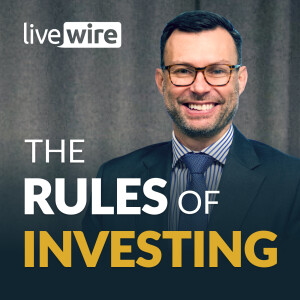
Saturday May 24, 2025
Andrew Mitchell: The market always wins
Saturday May 24, 2025
Saturday May 24, 2025
Equity markets have bounced, but Andrew Mitchell from Ophir says the road ahead is tricky. Higher bond yields and policy risks point to slower growth. In this environment, companies that can grow through the cycle will stand out. In this episode of The Rules of Investing, Mitchell shares his views on equity markets, the dominance of US megacaps, and why he remains optimistic on small and mid-caps. He also unpacks the thesis behind a mission-critical tech stock flying under the radar, one he believes has the potential to become a rare ‘Rule of 40’ standout.
_____________________
Thanks to our Sponsor AlphaSenseThis latest episode is brought to you by AlphaSense.See what AlphaSense can do for your investment research—visit alpha-sense.com/livewire to get started.
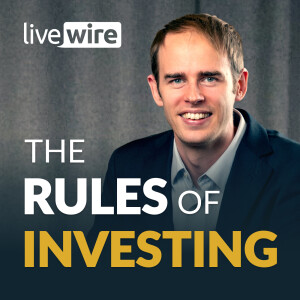
Friday May 09, 2025
Friday May 09, 2025
Australia’s ETF industry is booming - up $53 billion in the past year alone - and a new player is stepping into the ring. David Tuckwell, son of ETF pioneer Graeme Tuckwell, has launched ETF Shares to challenge the giants like Vanguard and Betashares. His weapon of choice? Low fees and ultra-focused US tech exposure. One fund holds just the top 10 Nasdaq stocks - an audacious bet on concentration over diversification. Is there room for another player in an increasingly crowded market? We explore the strategy, the story, and the stakes behind ETF Shares’ bold launch.
_____________________
Thanks to our Sponsor AlphaSenseThis latest episode is brought to you by AlphaSense.See what AlphaSense can do for your investment research—visit alpha-sense.com/livewire to get started.
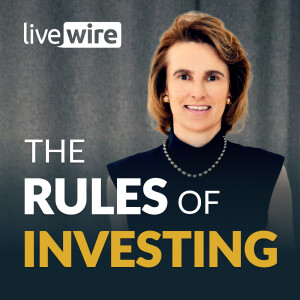
Thursday Apr 17, 2025
Tough medicine: Trump 2.0 is a structural break for economies and markets
Thursday Apr 17, 2025
Thursday Apr 17, 2025
Investors hoping for a swift ‘V-shaped’ recovery from the recent market sell-off are likely to be disappointed. Instead, they face a slow, grinding path forward. That’s the base case from Koda Capital’s Chief Economist, Brigette Leckie, who says the tariff-led policies of Trump 2.0 represent a structural break for economies and markets.
_____________________
Thanks to our Sponsor AlphaSenseThis latest episode is brought to you by AlphaSense.See what AlphaSense can do for your investment research—visit alpha-sense.com/livewire to get started.
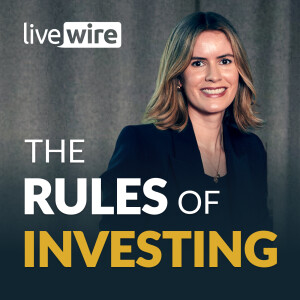
Friday Apr 11, 2025
“We’re buying”: Emma Fisher spots a rare chance to upgrade the portfolio
Friday Apr 11, 2025
Friday Apr 11, 2025
“Are you okay?” That was the question Emma Fisher got from her mum after the ASX plunged more than 6% in a single day. For Fisher, it was a soft signal that the worst of the panic may be behind us. In this episode of The Rules of Investing, Emma shares why sharp sell-offs are the new normal, the two market “buckets” she’s buying from, and how she’s funding new ideas. Last time she was on the podcast, Emma tipped ResMed at $22. This time, she’s back with a fresh idea she’s backing for the next 5 years.
_____________________
Thanks to our Sponsor AlphaSenseThis latest episode is brought to you by AlphaSense.See what AlphaSense can do for your investment research—visit alpha-sense.com/livewire to get started.



